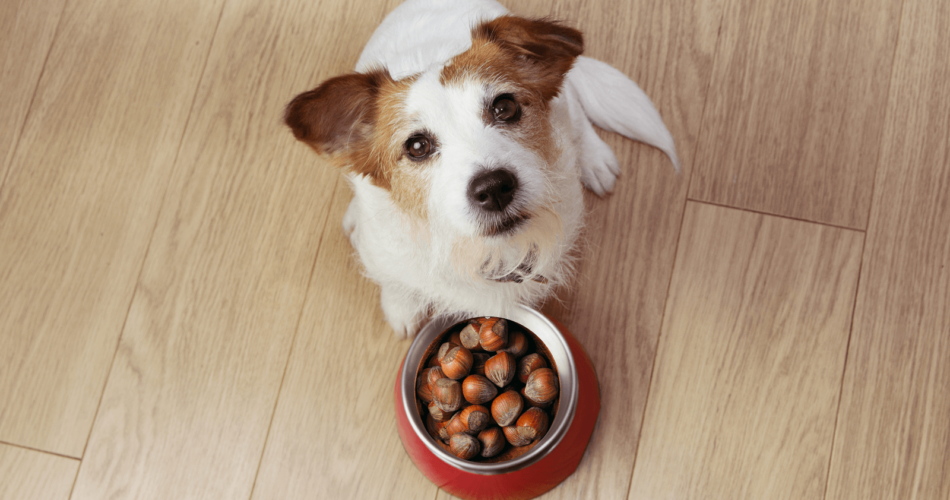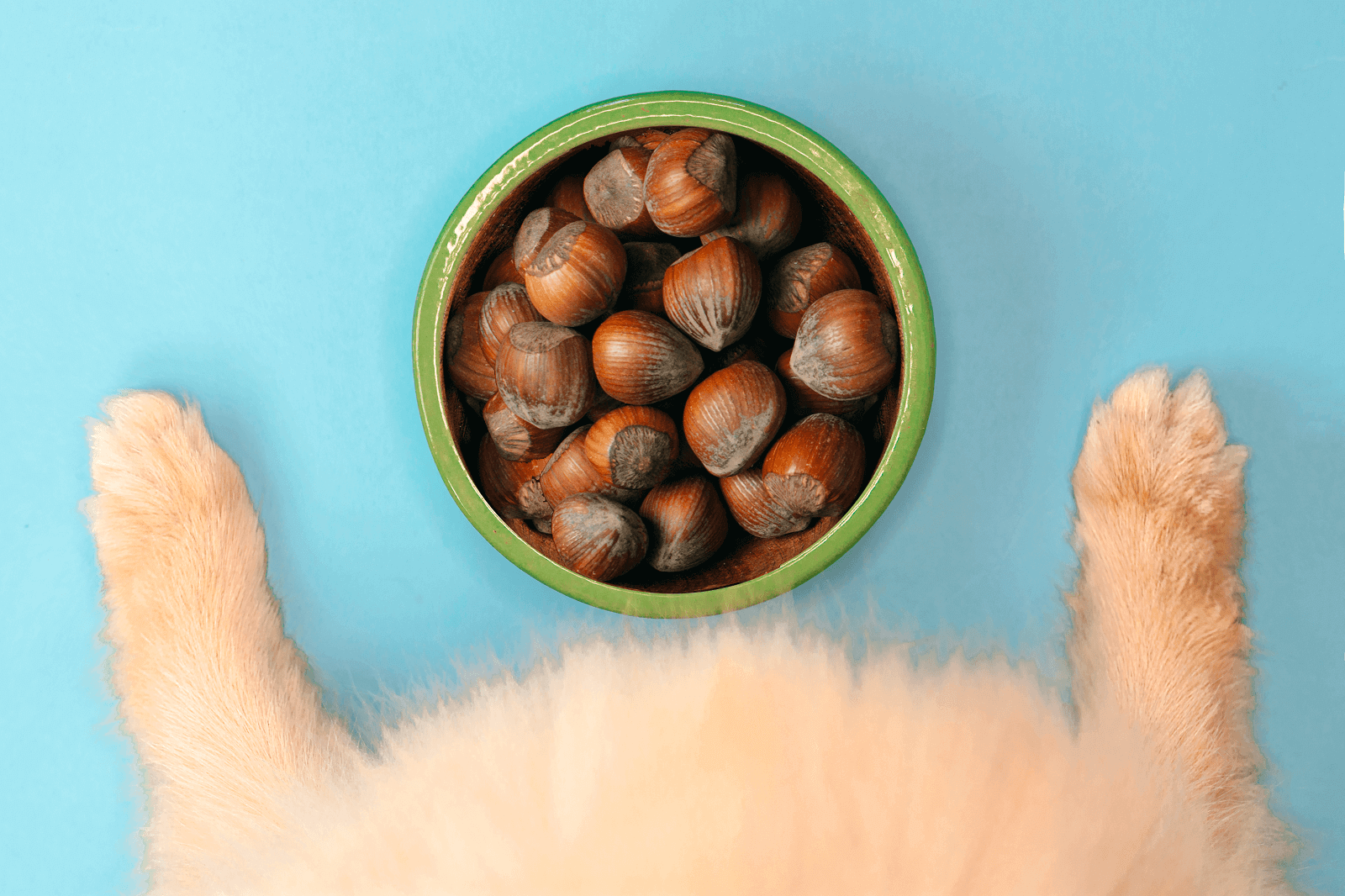To have a dog is to take care of all its needs, which includes its diet. Many dog owners know that there are somethings that you should not feed your dog; this includes chocolate, onions, grapes, raisins, and many more. We have done our research to answer your question, can dogs eat chestnuts? The answer is YES.
Chestnuts have been guaranteed as safe by the ASPCA for your dog to eat. It is a healthy food rich in omega fats and fiber; it is suitable, it might cause stomach upset for your dog if a large quantity is consumed, and many other things. Follow this article to learn about the nutritional value of chestnuts, possible risks, and other frequently asked questions.
What makes chestnuts healthy food?
There are a lot of things that make chestnuts healthy for humans and dogs. We would explain each one, and you will see why chestnuts are almost a superfood.
High fiber content:
Chestnuts are rich in fiber, around 8.1g in every 100g of chestnuts. Fiber helps your dog in two significant ways:
- It aids digestion.
- It reduces the risk of colon cancer.
In humans, it keeps us full, but we ingest fewer calories, which helps with monitoring weight.
Omega fatty acids:
The omega fatty acids in chestnuts are good for dogs in so many ways, just like humans. Here is a list of its benefits to your dog:
- They are essential for cell membrane structure and cell function.
- They assist the proper development of brain function in puppies. They also improve the psychological mood of your dog.
- The omega fatty acids in chestnuts help with the immune function of your dog and its skin and coat’s health.
- They help with ýour dog’s reproduction and lactation in dogs with puppies.
- There are even more benefits to omega fatty acids in your dog’s diet.

Potassium:
Chestnuts are potassium-rich, 715mg in 100g, which is high. Potassium helps dogs with cardiovascular diseases and also helo with hypokalemia (really low potassium levels in the blood). It is also an important electrolyte that helps with brain function and muscle activity.
Chestnuts contain many more beneficial vitamins and minerals, vitamin C, calcium, magnesium, manganese, copper, etc. Read more about the nutritional benefits of chestnuts,
Possible Risks
With almost everything, there are benefits and possible risks that come with them. The possible risks come as a result of consumption in large amounts and many other factors. Here are the possible risks:
Different species of chestnuts:
Chestnuts have different species; some are toxic to humans and dogs, like horse chestnuts and buckeye. Make sure you give your dog the right kinds to avoid complications.
Harmful in large amounts:
The same reason chestnuts are good, is what makes the harmful in large amounts. They are rich in fiber(5.1g for every 100g) and high in fat, which is not good for dogs when consumed a lot.
Dogs have trouble processing starch; chestnuts contain 23g of starch for every 100g. They also have trouble digesting food with high-fat content, this can cause your dog severe diarrhea, vomiting, and pancreatitis, especially in smaller dogs and severe cases.
If your dog has consumed a large amount of chestnut or other nuts, make sure you immediately contact your vet.
Method of preparation:
All forms of chestnuts are edible to your dog, apart from those that have been processed with additives, and those that have been salted. A combination of foods with high-fat content and salt is never a good idea when it comes to your dog’s diet.
You can roast chestnuts. You could also boil the chestnuts then grind them into a paste, which you can put into your dog’s food. There are several options, be creative!
Allergic reaction:
Like humans, some dogs have allergic reactions to nuts; they include skin problems, oversleeping, low appetite, etc. A good way to know if your dog isn’t allergic is to introduce chestnuts in small quantities.

FAQ
Here are some frequently asked questions about your dog eating chestnuts and its different forms:
Can my dogs eat water chestnuts?
To the question, can dog eat water chestnuts? We can’t give a definite answer.
Water Chestnuts are aquatic vegetables that grow in marshes; they are not nuts. There is much debate on water chestnuts, many claims that, they feed it to their dogs, while some say it had adverse effects on their dogs.
There isn’t much research into their toxicity to dogs, and we would advise that you avoid feeding it to your dog.
Can dogs eat roasted chestnuts?
Yes, dogs can eat roasted chestnuts, just make sure it is plain without any salt or extra additives. Like we mentioned earlier, salt doesn’t pair well with high-fat foods for dogs.
Can dogs eat sweet chestnuts?
Sweet Chestnuts are good for your dog. They have high nutritional value, but remember to feed in small portions; any more would cause your dog stomach problems.
Can dogs eat cooked chestnuts?
Dogs can eat cooked chestnuts, and they can be boiled without salt or other additives, then ground into a paste which you can put in your dog’s food. They can also be roasted, as we mentioned above.
We hope we have answered your questions to your satisfaction.
Conclusion
Chestnuts are healthy for dogs and humans; they are rich in fiber, potassium, and omega fatty acids. Your dogs can eat chestnuts but note that it should only be in little quantities due to the possible side effects, which include severe diarrhea. We also advise that the chestnuts be without salt and other additives if you want to give your dog.
We have answered a few of your questions on how you can make chestnuts edible for your dogs; cooking, roasting, etc. Finally, not all chestnuts are consumable, and there are the exceptions of horse chestnuts and buckeye.
Do you have more questions about chestnuts? What’s your experience with feeding your dog chestnuts? Leave a comment below.


